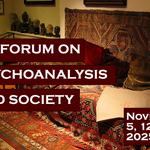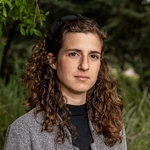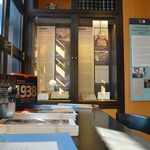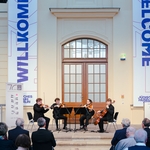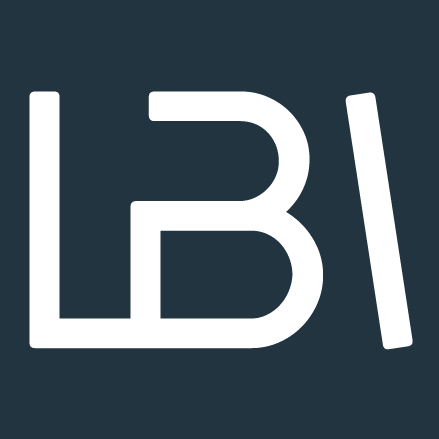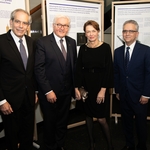The Search for the Lost Lesebuch & the Building of a Library



David Friedländer's Lesebuch für jüdische Kinder is the first textbook for German-Jewish children in German, an important book of the Haskalah movement. The Lesebuch combined Jewish values with Enlightenment values – learning to write and read in German as well as reading and studying secular texts. It was published for the “Jüdische Freischule für mittellose Berliner Kinder” which had been founded in 1778 by David Friedländer together with Hartwig Wessely and his brother-in-law Isaak Daniel Itzig. The Berlin Free School triggered the opening of similar Jewish Reform schools such as in Hannover (1798), Seesen (1801), Frankfurt am Main (the famous Philanthropin, founded in 1804), the Samson-Schule in Wolfenbuettel (1807), and elsewhere.


David Friedländer, Lesebuch für jüdische Kinder, Reprint (Berlin: Soncino-Gesellschaft, 1927). LBI Library, PF 3114 F7.


This rare book constitutes a milestone in Hebrew printing – it is the first printed Hebrew edition of Sefer Yetsirah, dedicated to the Duke of Mantua, Guglielmo Gonzaga (1538 – 1587). - Sefer Yetsirah (Book of Creation) is one of the earliest extant texts on Jewish mysticism. Most contemporary scholars date the text to the Talmudic period, usually around the second century CE; there is agreement that the text has at least medieval origin as apparent from manuscript editions of the text. At the center of Sefer Yetsirah stands God’s creation of the world through the magical creative powers of the Hebrew alphabet. Throughout the centuries, and especially since the spread of Kabbalah, it was believed that mystic practitioners could use this knowledge to harness the powers of creation. A Latin translation of Sefer Yetsirah was printed 10 years prior to the Hebrew edition in Paris in 1552.

This Hebrew Bible edition with a Latin commentary by Johann Heinrich May the Younger (1688, Durlach-1732, Giessen), a professor for Greek and Oriental philology in Giessen, has numerous handwritten marginalia of former owners, including extensive annotations about Biblical and important historical dates including the French Revolution.



- Author
- Renate Evers
- Date
- Wed, Sep 27, 2023
A book once believed to exist only in a single copy in the Berlin Municipal Library and since lost has surfaced in a recent donation to the LBI Library. With it came a paper trail documenting a decades-long quest by the founders of the LBI Library to find it.
When a group of Jewish bibliophiles in Weimar-era Berlin, the Soncino Gesellschaft, set out to print a facsimile edition of David Friedländer’s 1779 reading primer for Jewish school children, its editor Moritz Stern searched high and low before finding what he believed was the last extant copy. Stern’s introduction to the 1927 Soncino reprint discusses how difficult it was to locate the then presumably only remaining original copy. Even David Friedländer’s biographer noted in 1861 that he had never seen a copy. Other scholars had also searched but found nothing. A 1781 Prague reprint of the Lesebuch that was supposed to be in a library in Vienna could not be located. Moritz Stern finally located the copy in the Municipal Library in Berlin by persistence and accident: the book had not been cataloged with the main collection.
Thanks to the Soncino Gesellschaft, researchers interested in the Jewish Enlightenment, Jewish educational reform, and the emergence of an assimilated Jewish middle class in Germany have had relatively easy access to the Lesebuch für jüdische Kinder (Berlin, 1779. see LBI News No. 114), the first textbook for Jewish children in German. The first edition remained elusive however, and LBI was long only able to offer access to the 1927 facsimile edition.
However a recent donation of three rare books from an estate in Switzerland included a previously unknown first edition copy of the rare 1779 Lesebuch. This copy’s existence was most likely overlooked since it was bound together with nine other educational texts about orthography and grammar published between 1779 and 1782. The Lesebuch was the only one of the ten included works by a Jewish author, and the individual works were likely not captured in any library or antiquarian’s catalog.
Max Kreutzberger and Irmgard Foerg’s Quest
Who located this overlooked copy of the rare 1779 Lesebuch and eventually transferred it to the LBI Library? As it turns out, it was a final act in the careers of the principal architects of the LBI New York collections.
The Lesebuch came to LBI with a donation of rare books from the estate of Irmgard Foerg (1925, Munich – 2009, Locarno) who was the first librarian at the LBI New York. The accompanying documentation shows that Foerg had received the books from Max Kreutzberger (1900, Königshütte – 1978, Locarno), the Institute’s first Executive Director.
Kreutzberger, who had emigrated from Germany to Palestine in 1935, met Irmgard Foerg in Munich in 1948 on a business trip to Germany on behalf of the Jewish Agency. When he was appointed the new director of the LBI, he hired her as his assistant and first librarian, and together they built an unparalleled collection from the ground up.
Irmgard Foerg purchased contemporary books on German-Jewish history and acquired important historic publications through antiquarian catalogs and travel to post-war Europe. She also solicited book donations from the German-speaking Jewish immigrant community in New York and beyond. She persuaded the Volkswagenstiftung to underwrite the acquisition of a large collection of newspapers and rare newsletters of pre-war Jewish communities. The collection was later microfilmed, and copies of the microfilms were acquired by many academic libraries in Germany and internationally. Foerg’s most important acquisition for the archives was the estate of the writer Fritz Mauthner. When Irmgard Foerg retired in 1967, the library’s holdings had grown to about 17,000 volumes, including many precious rarities.
The elusive Lesebuch
One foundational text eluded them, however – the 1779 Lesebuch. In 1929, two years after the Soncino reprint, the scholar Fritz Bamberger (who would later become a Vice President of LBI) published a note that he had found traces of two additional original copies of the Lesebuch – a second copy in the library of the Prussian Free Masons, and a third copy in the Bibliotheca Rosenthaliana in Amsterdam.
In 1968, nearly four decades later, Max Kreutzberger was still pursuing the book from his retirement in Switzerland. Working from Bamberger’s notes, he made inquiries at the municipal library in Berlin, who declared that their copy had not survived the war. The fate of the Free Masons’ Library’s copy was also unknown. However, the copy in the Rosenthaliana in Amsterdam had survived, and he assumed that this was the only one at that time.
We can only speculate what happened next. It is likely that Kreutzberger discovered our book through an antiquarian dealer. The Lesebuch acquired by Max Kreutzberger includes bookseller’s notes in pencil and a paper note about the rarity of the book, which unfortunately does not reveal who offered it.
Then, at some point, Kreutzberger gave the book to his old colleague Irmgard Foerg, who had also retired to Locarno. Today it appears that at least four original copies of the 1779 Lesebuch exist worldwide: the copy in the Bibliotheca Rosenthaliana in Amsterdam, a copy in Rostock, which was digitized, a copy in Zurich – and now the copy at the LBI.
Following the donation of the three books in April 2023, I had the opportunity to meet the executor of Irmgard Foerg’s estate in Locarno. We also located about 60 books from her large private collection with inscriptions from a circle of German-Jewish retirees around Max Kreutzberger and Erich Fromm in Switzerland that will be added to our library. In addition, we will receive a financial bequest to benefit the LBI Library in honor of collection builders Irmgard Foerg and Max Kreutzberger – a good start for the celebration of 70 years of LBI in 2025.
From LBI News No. 116 (Fall 2023)
Latest News
